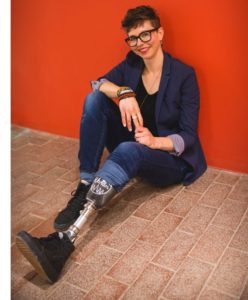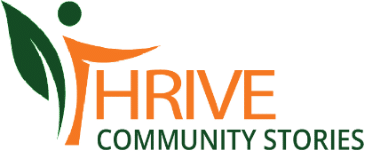 When I trained to be a lead advocate for the Amputee Coalition, I wondered how I would do in the role. I am not all that advanced with my knowledge around policy and politics, but I wanted to impact the system and create meaningful change. Who better to advocate than those who know what it is like to live with limb loss or limb difference?
When I trained to be a lead advocate for the Amputee Coalition, I wondered how I would do in the role. I am not all that advanced with my knowledge around policy and politics, but I wanted to impact the system and create meaningful change. Who better to advocate than those who know what it is like to live with limb loss or limb difference?
When we think about awareness and advocacy, we often think within the narrow terms of political activism and legislation. But advocacy can take place in many places and many ways. When you speak to a community organization, or when you ask for a particular seat on the airplane to accommodate your prosthetic leg, you’re exercising the power in your voice and your story.
So often we are hushed into silence or worried about taking up space. But if we can’t step forward boldly and find the courage to tell our stories, we are depriving the world of something really precious.
As a new amputee who suffered from a rare congenital bone disease, learning to be my own advocate has been a lifelong lesson that I am still learning. In the past year, I began to identify with pride as a disabled amputee. Previously, I equated disability with limitation. I couldn’t imagine living a good life if I couldn’t do things like most other people. But then something shifted, and I began viewing my differences as my superpowers—the things that make me unique, powerful, and wonderful. Now I see my story as a tool to motivate, encourage, and demonstrate the importance of owning who you are.
It is from this awesome, semi-bionic place that I went to my kids’ elementary school last month to share my experience with these young children. To honor Limb Loss and Limb Difference Awareness Month, I wanted to teach them about being an amputee and to celebrate the differences that make each of us unique.
It was incredibly powerful to stand in front of these young people and open the room to their curiosity. They sat with rapt attention and asked thoughtful, mildly humorous questions such as: “If you can’t feel your foot, how can you walk?” “How long will it take you to learn to run?” “How fast can you run?” “Does it hurt?” “Where you born with your prosthetic leg?”
I talked about my own childhood, when I was bullied extensively for having a limb difference, leaving me mostly friendless. This had a tremendous impact on my mental health. Before the end of the session with these lovely children, I had many requests to be their friend—but more important, I saw them thinking about their own friends differently, considering those children that might not have someone to play with as often.
This is change. This is advocacy.
I wanted the children to see that they don’t need to hide behind who they are. They need instead to boldly step forward. If we can impact change on this level, then we have brighter futures. Those children will in time help to build better systems and better equipment. They might even demand legislation that improves amputees’ lives.
It is a long game, but sometimes we must go downstream just as much as upstream. Raising awareness about disability and advocating for amputees can’t be done from only one direction. The challenge requires a multifaceted approach. So whatever direction you are facing, and whenever you have an audience, advocate for yourself and for others. One of my favorite phases is “Start where you are, and start with what you have.” The most important thing is to start.
My trip to my children’s school was a step toward taking care of my younger self—the self that wasn’t proud to be disabled, the little girl who cried herself to sleep because she was picked last for baseball. I got to invite young minds to consider their impact on others, to consider another person’s journey. It’s the same thing we need to invite our lawmakers to consider, a different way to see the world.
Together we can build a better world. It requires lots of self-care along the way, because at times the going will get tough. But please keep going, because that is what matters. Your story, your voice, your advocacy in whatever direction you are facing—this will change our world.
Elayna Alexandra is a life coach, strategist, and writer. Visit her online at elaynaalexandra.com or on Instagram at @elaynaalexandra.

